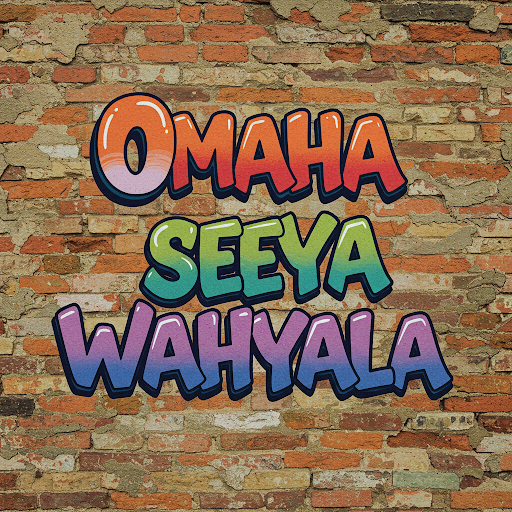In a world racing forward with technological advancement and rapid globalization, the threads of tradition, family, and cultural heritage often risk being unraveled. But in certain communities, like those in South Asia and parts of Africa, the strength of kinship continues to serve as a powerful bond across generations. The phrase “Omaha Seeya Wahyala”—a blend of words echoing familial ties and ancestral wisdom—brings forth a deeper story of unity, memory, and cultural identity.
Though it may not be a globally recognized term, “Omaha Seeya Wahyala” can be interpreted as a poetic representation of an elder’s voice (“Seeya” often means grandfather or elder in many South Asian and African languages) calling upon the community (“Wahyala” referring to siblings or kinfolk). “Omaha” could symbolize a sacred place or spirit. Together, the phrase speaks to the timeless nature of familial love, community strength, and ancestral pride.
The Significance of Elders in Tradition
Across diverse cultures, elders hold a position of great respect. They are the keepers of stories, the preservers of history, and the guiding lights of younger generations. In many African and South Asian communities, elders are not merely family members; they are wisdom bearers. Their stories do not just entertain—they educate.
When an elder says “Omaha Seeya Wahyala,” it is as if the ancestors themselves are calling out, reminding the family to stay united, to remember their roots, and to live by the values passed down through generations. This phrase can evoke deep emotions—a connection to past generations and the unbreakable thread of kinship that binds families together.
Kinship Beyond Blood
The word “Wahyala” symbolizes more than biological siblings. In many cultures, it extends to cousins, close friends, neighbors, and even those bonded by shared experiences. Kinship becomes a social network—an invisible web of relationships that provides security, identity, and a sense of belonging.
In tribal and rural communities, especially, the concept of kinship plays a vital role in daily life. People share food, raise children together, solve disputes, and make decisions as one family.
Ancestral Echoes and Oral Histories
In many traditional communities, stories are not written—they are spoken. From fireside tales to festival songs, history is passed down through voice and memory. Elders recount the tales of their ancestors, of wars fought, lands lost and gained, family migrations, and cultural shifts. These oral histories are invaluable—they form the identity of an entire people.
“Omaha Seeya Wahyala” acts as a poetic chant—an elder’s call to remember. In a time when much of our history is digitized and stored in databases, the echo of a grandfather’s voice telling a bedtime story still has unmatched emotional depth.
Cultural Practices That Preserve Kinship
Various cultural practices help keep the spirit of “Omaha Seeya Wahyala” alive:
-
Naming Ceremonies: Many communities name children after ancestors, keeping their memory and legacy alive.
-
Family Gatherings: Seasonal reunions or religious festivals often bring extended families together to celebrate their shared lineage.
-
Communal Meals: Eating from the same pot or sharing traditional dishes reinforces the sense of oneness.
-
Storytelling Evenings: Older family members share tales, riddles, and proverbs to instill morals and history in the youth.
-
Rites of Passage: Ceremonies for births, marriages, and deaths are carried out with respect to ancestral customs.
Each of these practices reinforces the values encapsulated in “Omaha Seeya Wahyala”—togetherness, continuity, and connection.
Kinship in the Diaspora
With globalization, many families have scattered across continents. Grandparents live in villages while grandchildren grow up in bustling cities thousands of miles away. Yet the call of “Omaha Seeya Wahyala” still rings true.
Immigrants often try to recreate community networks in their new homes. They form cultural associations, celebrate traditional festivals, and teach native languages to their children. These efforts are not just about nostalgia—they’re acts of cultural survival. They ensure that future generations know their roots, their stories, and the value of their kinship bonds.
Video calls have replaced long walks to the elder’s home. Digital archives now store folktales and songs. But the essence remains: a connection to heritage.
Modern Challenges to Traditional Kinship
Despite its strength, traditional kinship systems face growing challenges:
-
Urbanization: In cities, families live in nuclear units, often cut off from extended kin.
-
Digital Distraction: Children today are more exposed to global media than local stories.
-
Cultural Amnesia: With migration and language loss, younger generations may struggle to connect with their heritage.
The solution lies in conscious efforts—parents and elders must share stories, celebrate traditions, and engage youth in cultural practices. Schools and communities should incorporate local history and languages into their programs. Preserving kinship is not just about looking back—it’s about ensuring a richer, more rooted future.
The Future of Kinship and Heritage
As societies evolve, so too will our definitions of family and belonging. But no matter how modern we become, the values of unity, respect, and shared identity will remain essential. “Omaha Seeya Wahyala” is not just a nostalgic phrase—it’s a blueprint for cultural resilience.
By honoring our elders, embracing extended kin, and passing on our stories, we ensure that heritage is not lost. Instead, it transforms, adapts, and thrives. Kinship is no longer limited by distance or time—it lives in the choices we make, the relationships we nurture, and the values we uphold.
Conclusion
It’s a reminder that our stories matter—that the voice of an elder carries the wisdom of centuries, and that in every sibling, cousin, or neighbor, there is a shared piece of ourselves.

